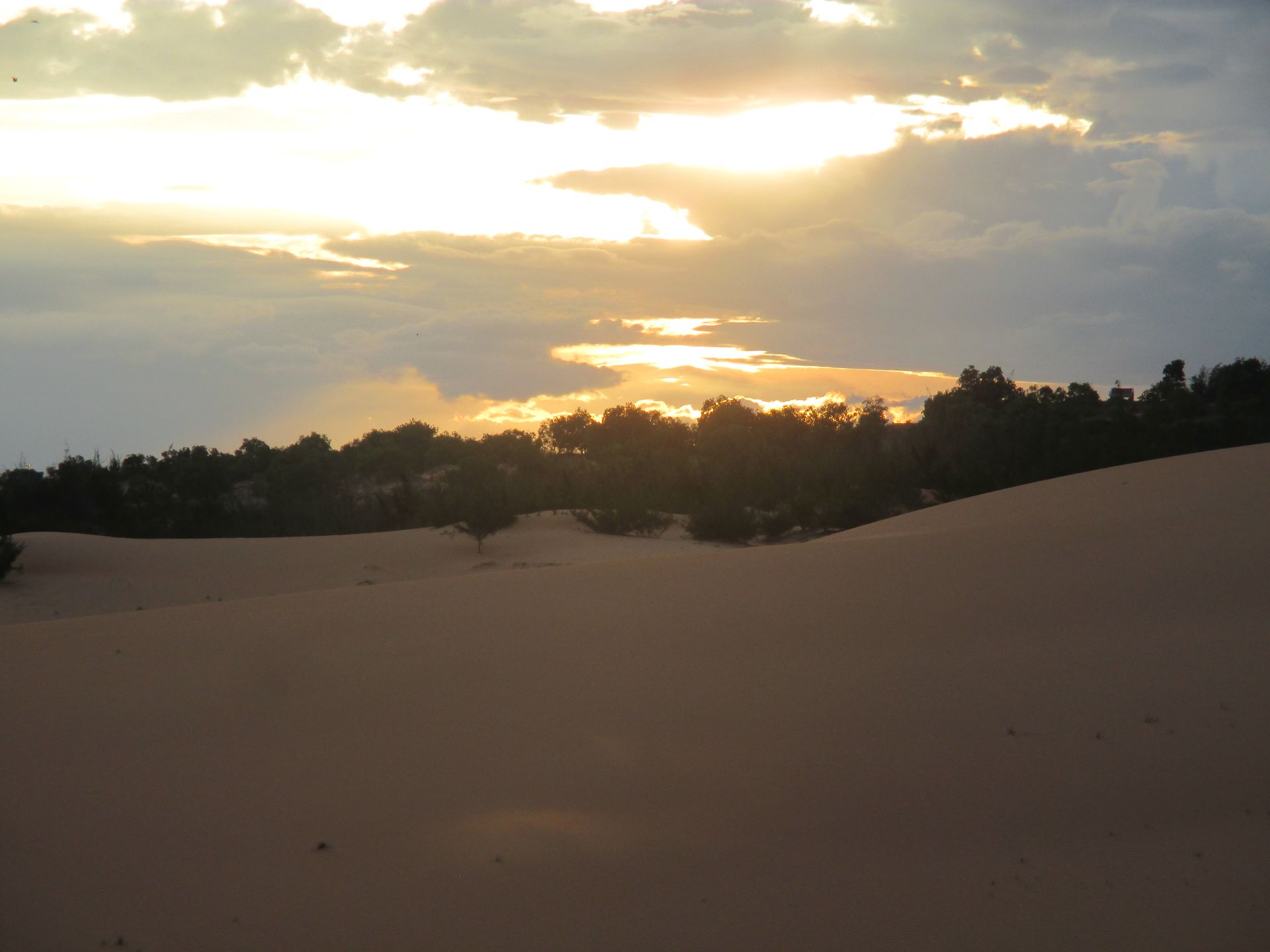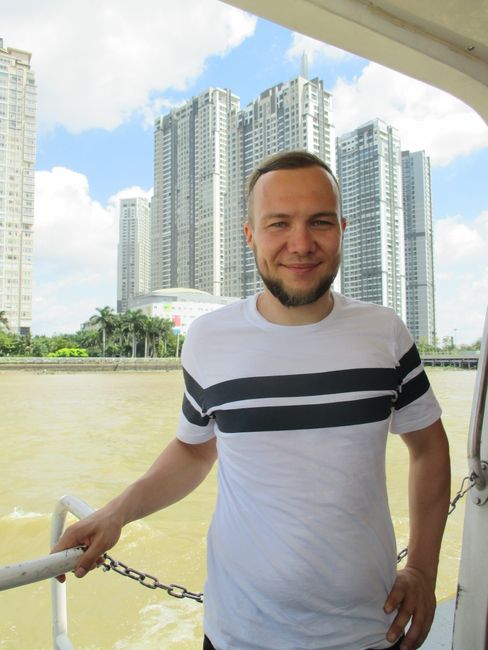Off to Peru (2024)
Argitaratu: 05.03.2024
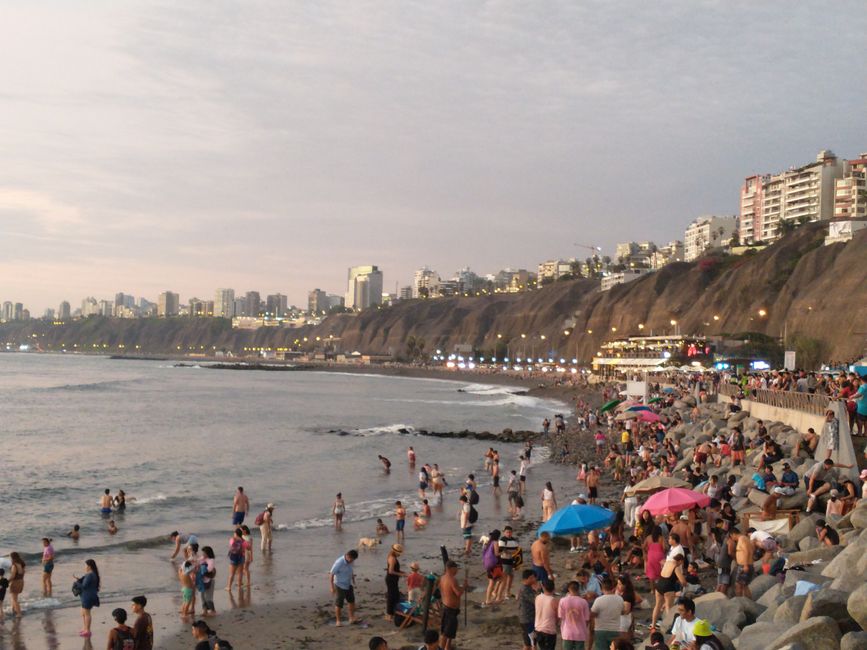
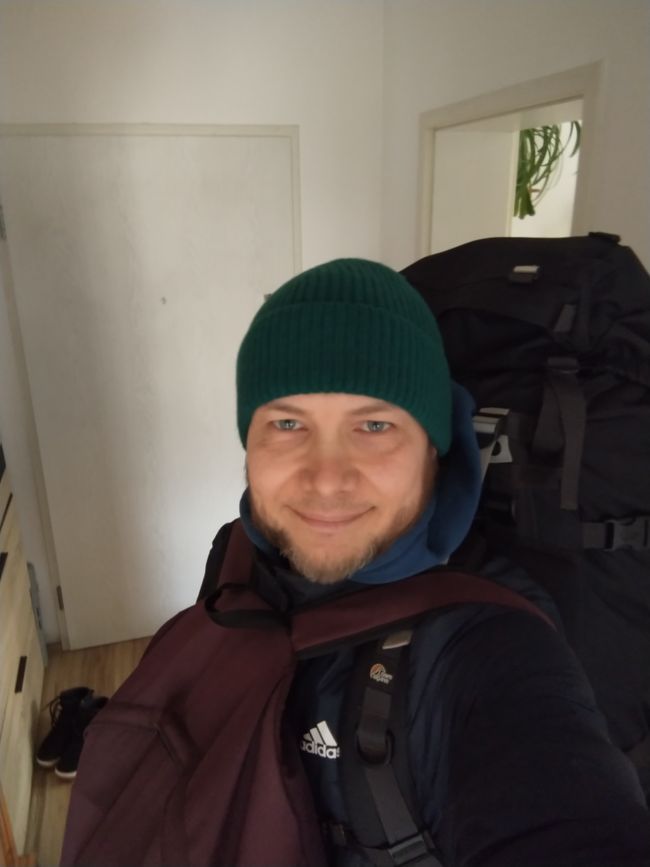
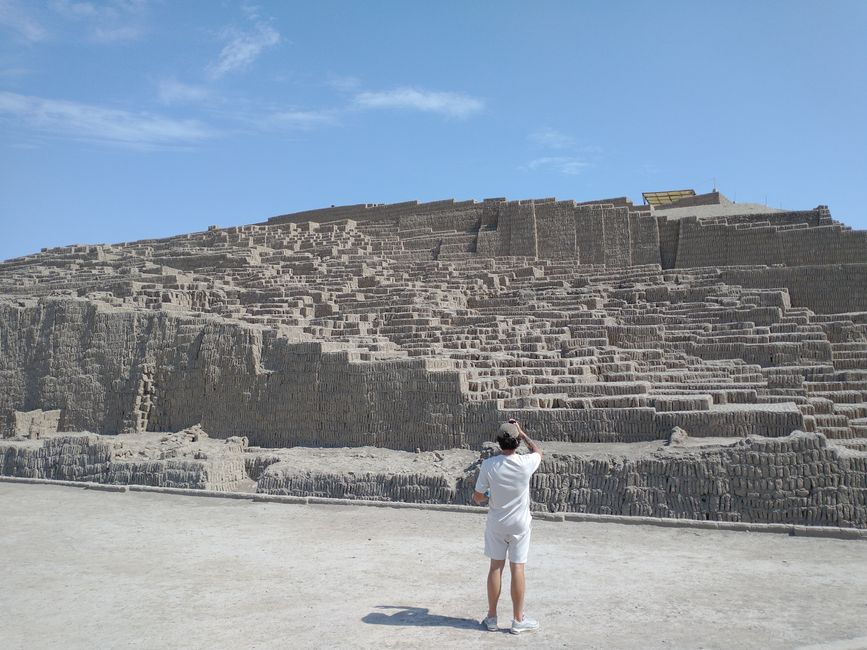
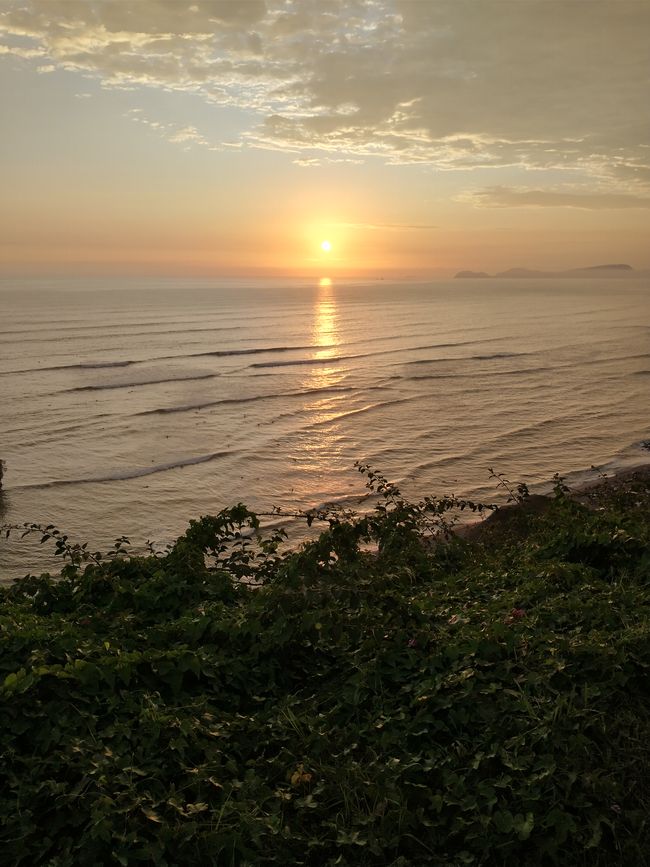
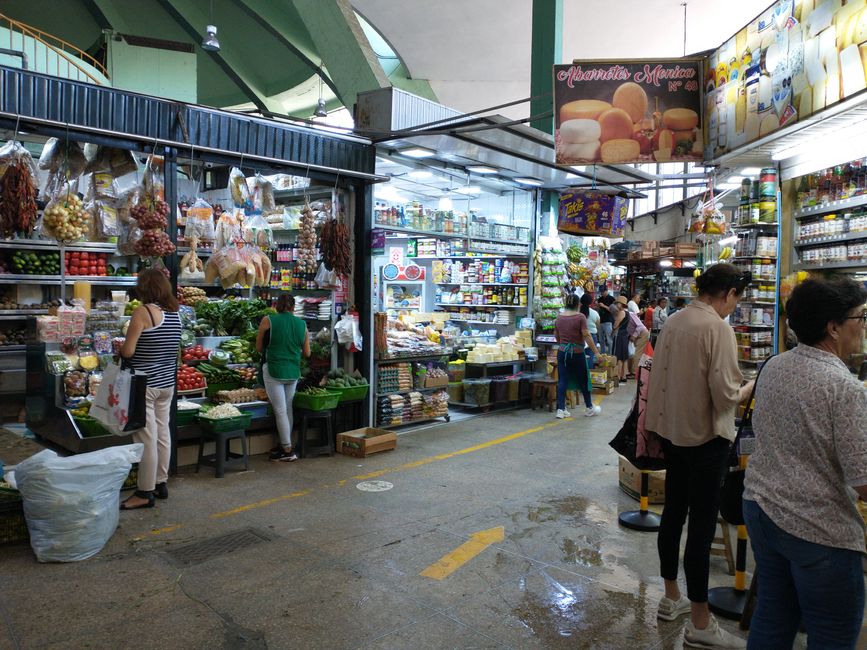
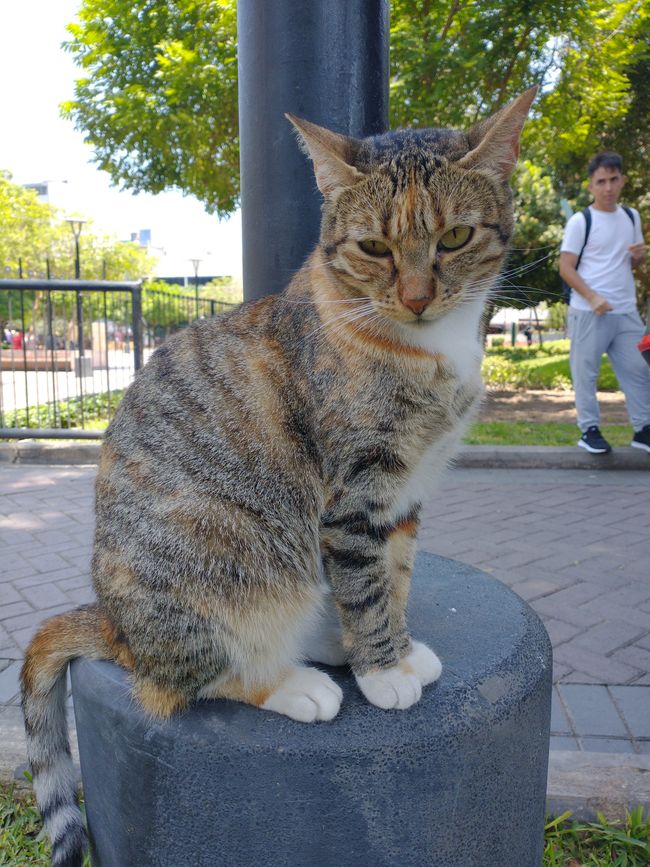
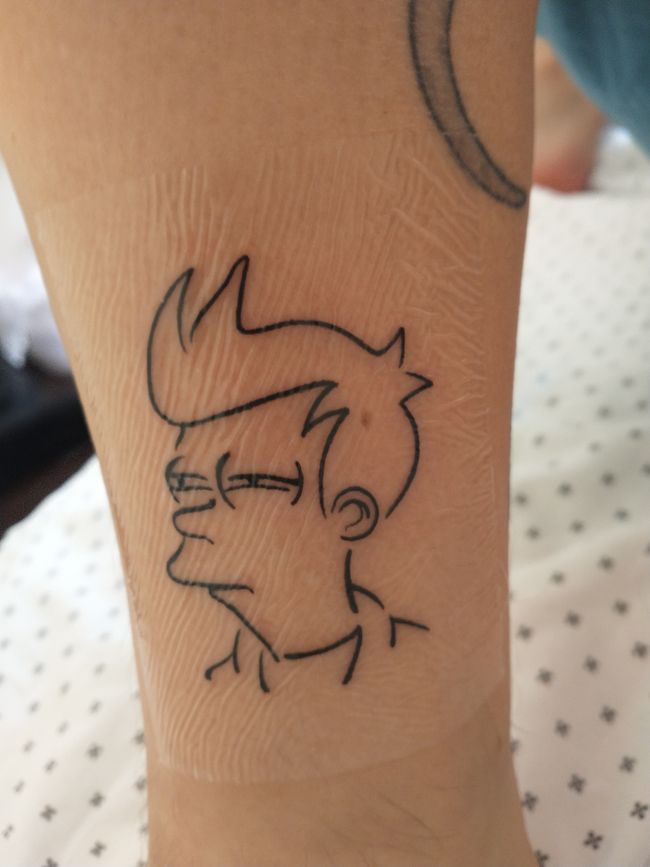
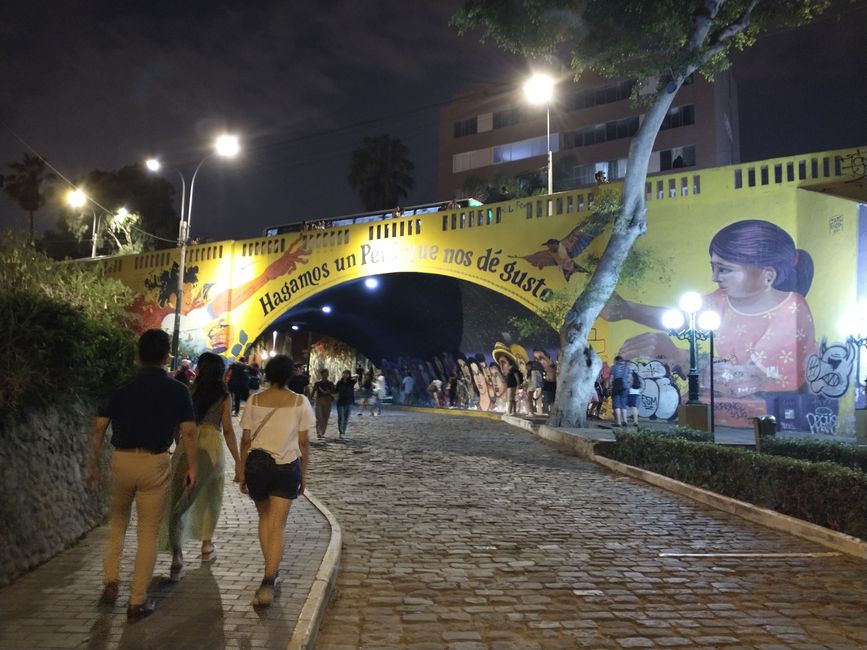
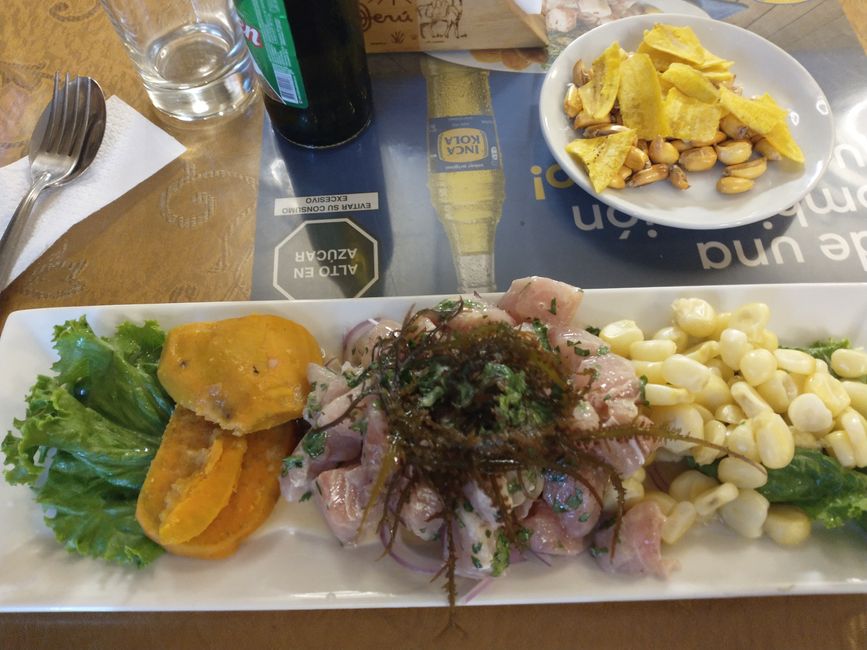
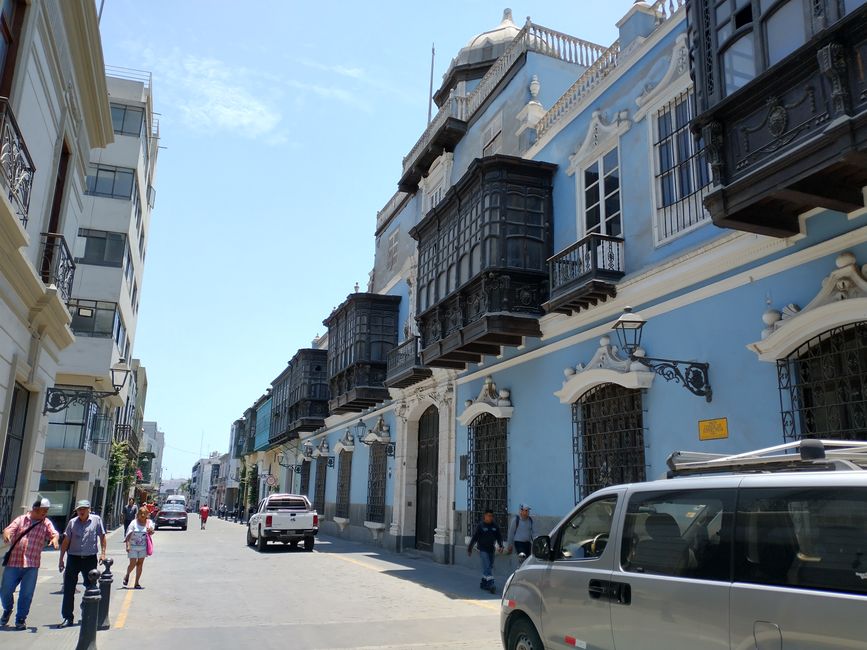
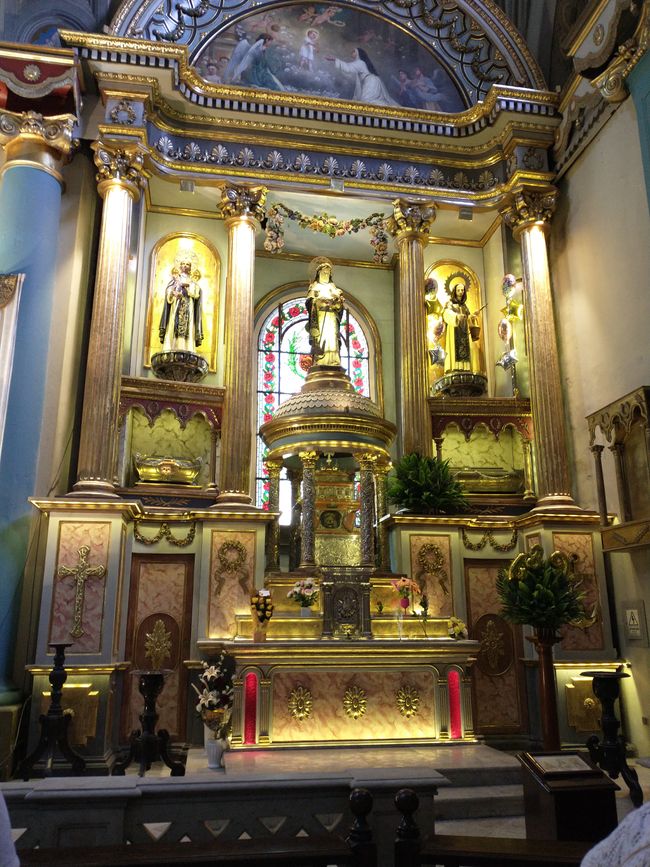
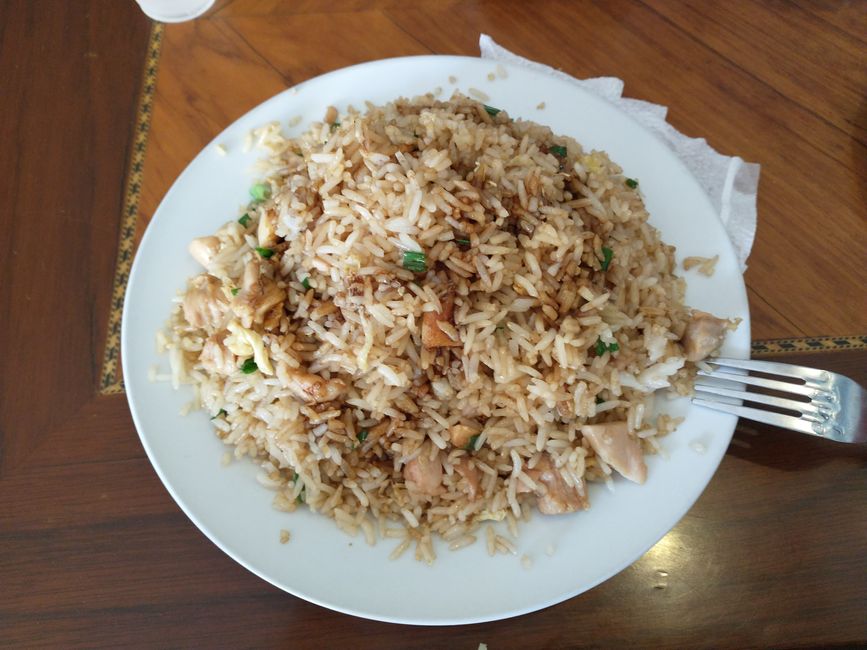
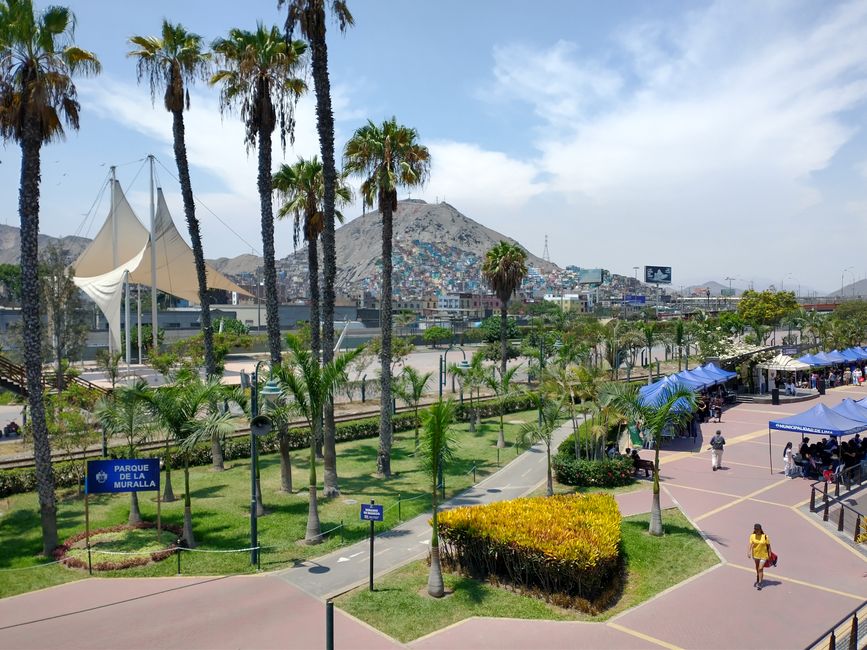
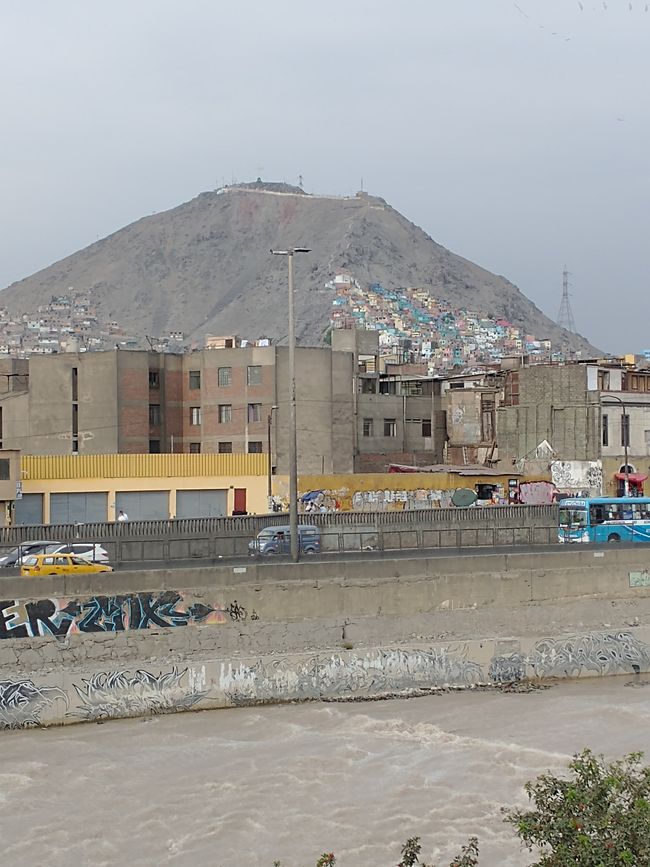
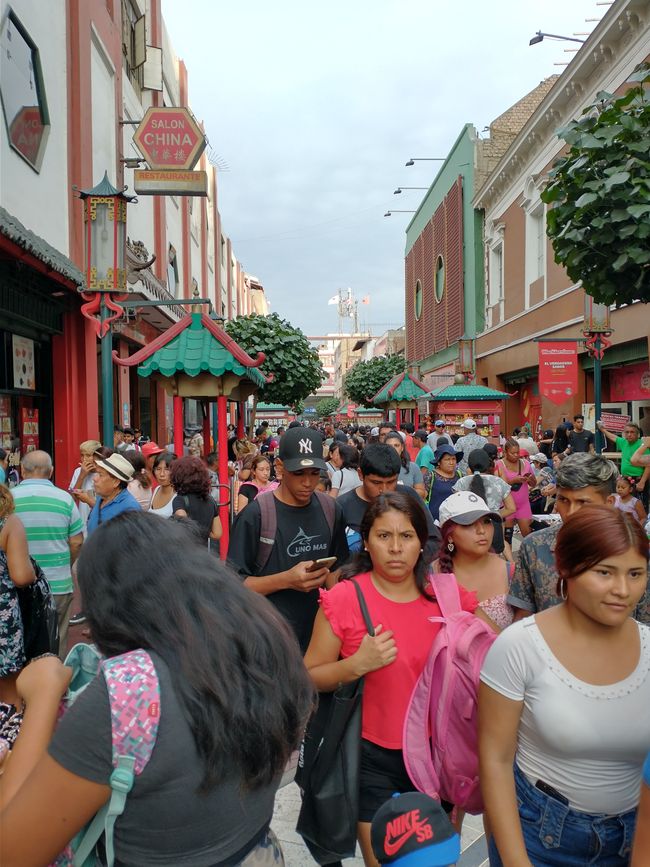
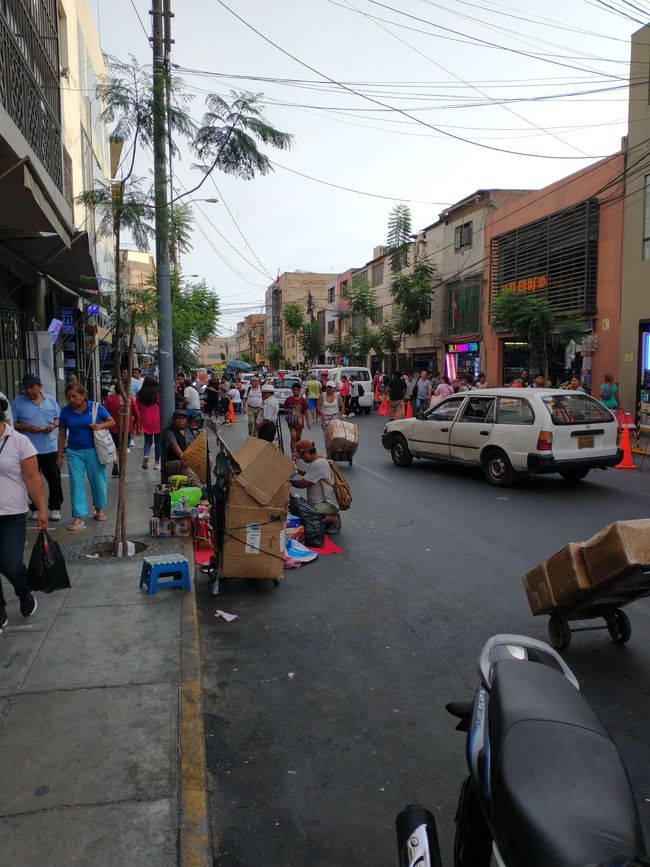
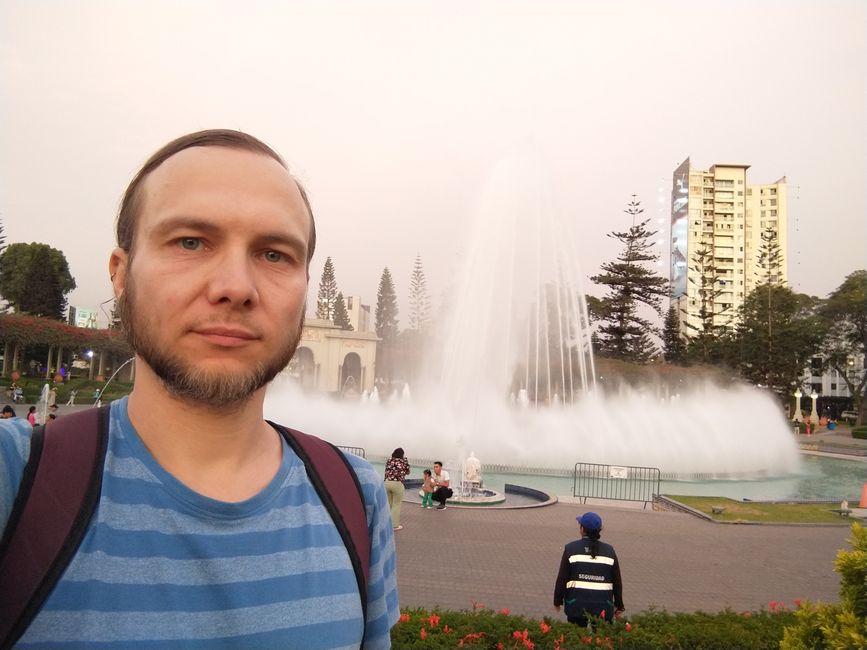
Harpidetu Buletinera
Yes, I want to know it again when I'm 40 and act as if I'm in my mid-20s. As you read, remember that I actually only write the blog for myself. As usual, the first entry is a bit longer, thanks to the many new impressions, I promise to keep it shorter. Briefly about the journey, everything worked: train, flight, transport from the airport to the hostel. By chance, on the first flight to Madrid, Luca, a music student from Weimar who was visiting relatives, was sitting next to me. Of course I took advantage of the opportunity and collected plenty of tips. We landed around 6 a.m. and I had to change clothes first, because it was way too warm. At the airport I had brief contact with a German who was doing a voluntary year in Lima. He wanted to warn me about the taxi drivers, but I already knew that they had overpriced prices. He also gave me a lot of information. At around 8 I was pretty exhausted at the hostel.
The hostel is okay, suits my needs. There aren't many travelers around at the moment, but there's always something going on since the family lives in the hostel. The building was probably built in several phases and was always expanded by one floor. I have my own room on the second floor and no AC. Since the aisles are a bit narrow, it's not for fat or tall people. The family is very helpful, but often speaks Spanish to me. I've already learned a bit of Spanish. Barranco is considered the hip district of Lima. It's safe, clean and busy. Having had a fresh shower, we quickly found a currency exchange office - it's a rip-off at the airport.
After a nap and a delicious chicken soup in the local kitchen next to the hostel, I took the bus to an ancient site in Miroflores. The bus is cheap but you need a chip card, so my first attempt failed. The bus drivers' driving style is, to put it bluntly, daring. On the whole, rules are followed. During rush hour the traffic is incredibly heavy and everyone is constantly honking. Which is pointless because everyone is used to it and ignores it. Presumably it's to relieve stress. English is very little spoken here, but somehow it still works. Huaca Pacllana is an ancient city of the Lima culture, the first culture in this area. The structure consists of a kind of stacked clay bricks, thanks to the special technology it is earthquake-proof. Otherwise they weren't very progressive and were pretty brutal. Some women and children were sacrificed for a little rain. It is impossible to understand why people settled in a desert with 10 millimeters of precipitation per year.
I spent the rest of the afternoon looking at Miraflores. Very pretty, one of the wealthiest parts of the city. Above the cliffs there is a beautiful promenade with parks, athletes, paragliding and lots of life, everyone is there and relaxing. The dealers are not pushy either. There are hundreds of surfers on the stone beach (things the size of a fist). The sunset looked colorful, probably thanks to the constant smog over the city. In between I managed to do a few purchases, buy a SIM card (let's be honest, internet is way too expensive and bad in Germany) and get sunscreen (it's not that common here).
The UV index is 14 at midday, deadly for my Central European, well-tanned winter skin. That often means siesta for me. The first impression of Lima is positive. I managed the most important things on day 1, but it was perhaps a bit much. Anyway, to combat jet lag, I went to bed late. I arrived surprisingly well, almost as a routine. I am full of energy and excited to see what the next 5 weeks will bring. Oh yes, there are cycle paths here, very nice ones in fact.
Day 2 starts with a small breakfast in the hostel with the other travelers and chatting a bit. We took the bus back to Miraflores to a local market. Not as impressive as in Asia, but you can still try something out. By the way, coca tea and coca leaves have no intoxicating effect, but are still delicious and invigorating. Then we went to JFK Park where many artists offer their works and the park is known as the cat park. There is even a cat festival every year. The district is really clean, hardly any poverty or beggars. Somehow I stumbled into a tattoo studio there too, oops. I deserved the nap.
In the afternoon we planned an exploration tour of Barraco. Meanwhile, the family hosted a BBQ with neighbors. What the owner of the house had prepared looked good; I think it was pork loin. In Barranco there is a lot of street art, parks, cabaret artists, musicians, restaurants, bars and a wonderful promenade above the cliffs. Crossing the "Bridge of Sights" is said to bring good luck (and pregnancy for women). The descent to the boardwalk was too crowded, as was the beach. Thousands of people, but everyone relaxed. It's nice too, but I'm bothered by the traffic and the honking of the taxis that are trying to attract customers. Luca recommended ceviche to me, so I tried it at one of the many restaurants. Ceviche is raw fish marinated in milk and lime juice, dressed with shallots and coriander and probably other ingredients. No idea what kind of fish it was. Plus sweet potato, thick corn and seaweed. The fish itself tastes very much like Southeast Asia. Actually it's against the rule: no cooking, no eating. I think that's fine. For a Sunday, a lot of shops were open and all the buses were running. I think it's good, please introduce it to us.
After breakfast we took an Uber to the historic old town, today's destination. Uber works well, the driver even tried to converse with me in English. During the journey there was probably an earthquake of magnitude 4 point something, I didn't notice anything. The city tour with Jorge lasted two hours, was okay, he showed a lot and told a lot. The lost war with Chile was often discussed. And of course the colonial history and the various waves of migration. Sure, Spaniards, then other Europeans and especially Italians. Once slavery was banned, capitalist exploiters needed new workers. So they brought something like serfs from China, but they took the opportunity and all ran away when Chile conquered Lima. And in between, poor Japanese also immigrated. Only then did the most important migration wave occur, that of Andean inhabitants from Peru to Lima. And so the city changed from a European population to an indigenous population. Summary of the tour: every building is important, there were important people everywhere, earthquakes were very bad, European pirates were also bad and you can imagine Chile. They invest a lot to maintain their old town.
Then I took a tour of the Basilica of San Francisco. He was somehow important and is a saint, a lot of Christian stuff. The catacombs were filled with an incredible number of bones. In the past, people didn't have a cemetery, but people were buried under the churches, i.e. only Christians and those who were baptized at the last moment. And social rank is also important underground; not everyone is equal in death. Lots of beautiful squares and parks, they can really do that. Only Francisco Pizarro (the conqueror of the Inca Empire) is unlucky; his statue was removed from the central square and placed in some corner. Once a celebrated hero, today unpopular with most Peruvians. Colonial reappraisal does not stop here.
Then I went to the neighboring district to see that too. Yes, it's getting a bit dingier, a few houses have fallen apart and you can also see a few homeless people. You could see the slums on the bare mountainsides. Apparently it's not very safe there. In the district I ate a good portion of chifa, a dish of Peruvian-Chinese culture. Stopover in China Town. Very, very lively and crowded. As in every China Town, there is a lot of factory-fresh garbage and odds and ends. Then I lost my way a bit and came through simpler parts of the city, a hustle and bustle. Finally, I went to a water park, which the owner of the hostel recommended. It was nice to look at, but more for children and families. Tomorrow we'll take the bus to Chincha Alta to visit a host family. I'm excited to see what I've gotten myself into. Ciao Lima.
Harpidetu Buletinera
Erantzun
